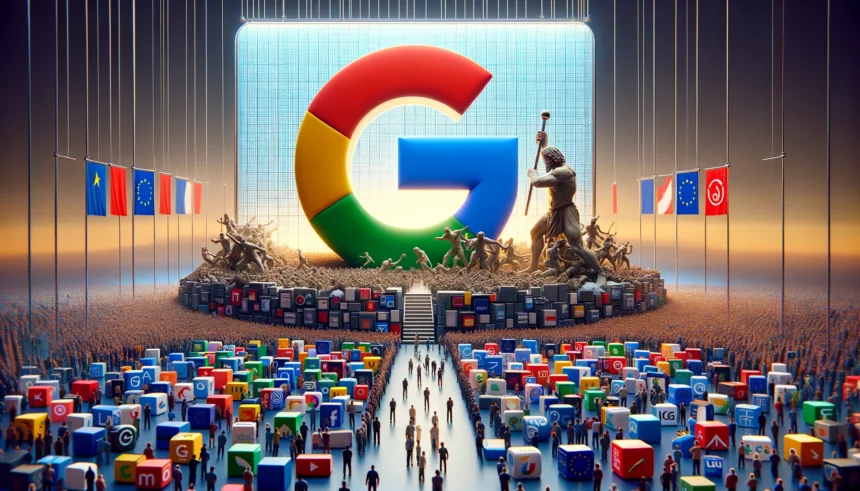In the heart of Berlin, the founder of the search engine startup Ecosia is grappling with a daunting challenge. As the European Union rolls out its ambitious Digital Markets Act (DMA), aimed at fostering competition and curbing the dominance of Big Tech companies, concerns are mounting over whether giants like Google will adhere to the new rules without undercutting smaller competitors.
The DMA mandates that companies like Google must introduce a choice screen for users, allowing them to select their default internet browsers or search engines freely. This move is intended to level the playing field and offer users genuine alternatives to the services of tech behemoths.
Christian Kroll, Ecosia’s founder, however, is apprehensive. Despite the noble intentions behind the DMA, he fears that the presence of Google’s services on the choice screen, alongside less popular options, may not effectively disrupt the search engine giant’s entrenched market position. Kroll’s concerns are not unfounded, as early observations suggest a continued preference for Google among users, a trend that threatens to marginalize smaller entities even further.
Google, for its part, has expressed a commitment to compliance, emphasizing its belief in user choice and competition based on merit. The company highlights extensive research and dialogue with the European Commission and industry stakeholders as the foundation of its choice screen design.
Yet, skepticism abounds. Kroll’s worries are echoed across a spectrum of experts, from legal analysts to regulatory specialists and investors, who question the DMA’s capacity to truly open up the digital marketplace. Despite the European Commission’s proactive stance on antitrust measures, including imposing significant fines on Google that total €8.2 billion, critics argue that these actions have scarcely dented the dominance of Big Tech in their core markets.
The unfolding scenario raises crucial questions about the future of digital competition in Europe. Will the DMA succeed in its mission to democratize the digital space, or will it inadvertently reinforce the status quo? As the EU strides forward with its regulatory overhaul, the tech industry and its observers remain locked in a watchful gaze, pondering the true impact of these regulations on innovation, competition, and choice in the digital ecosystem.
















